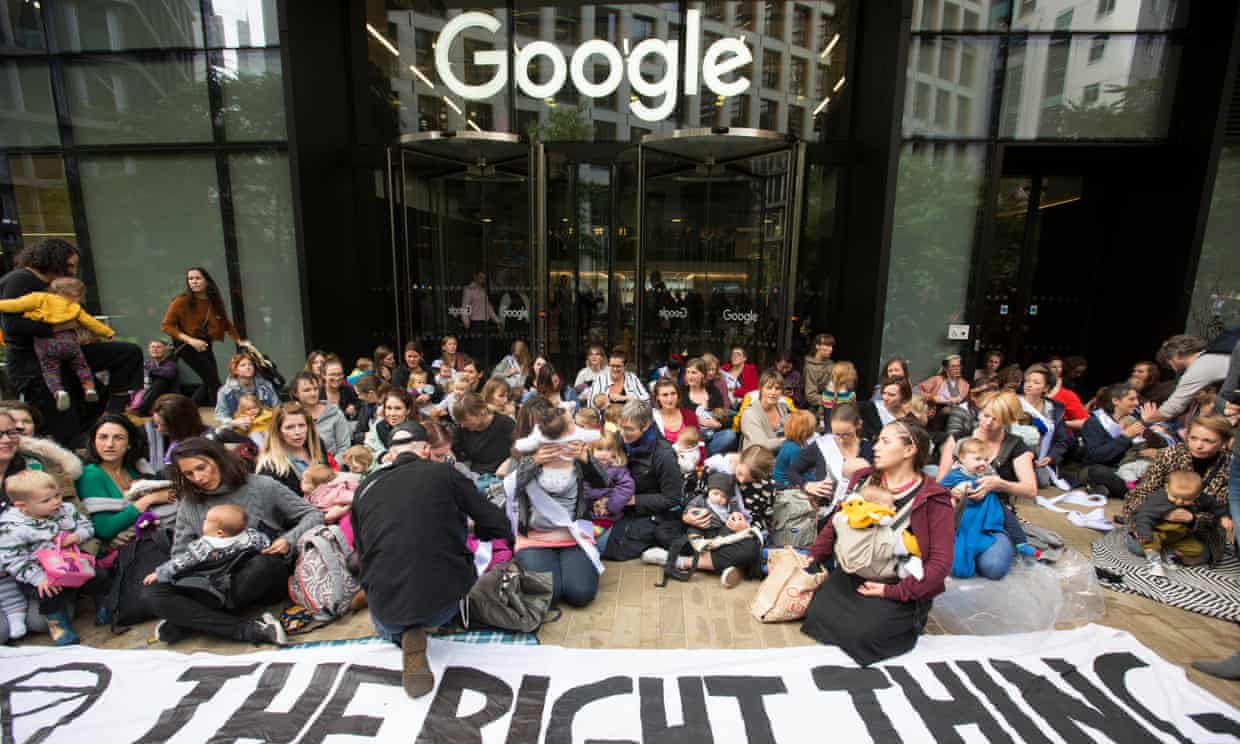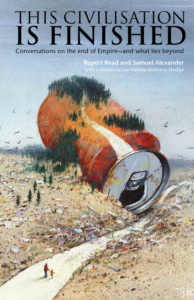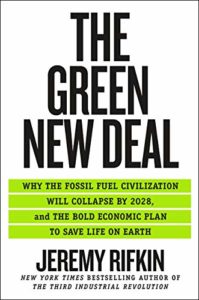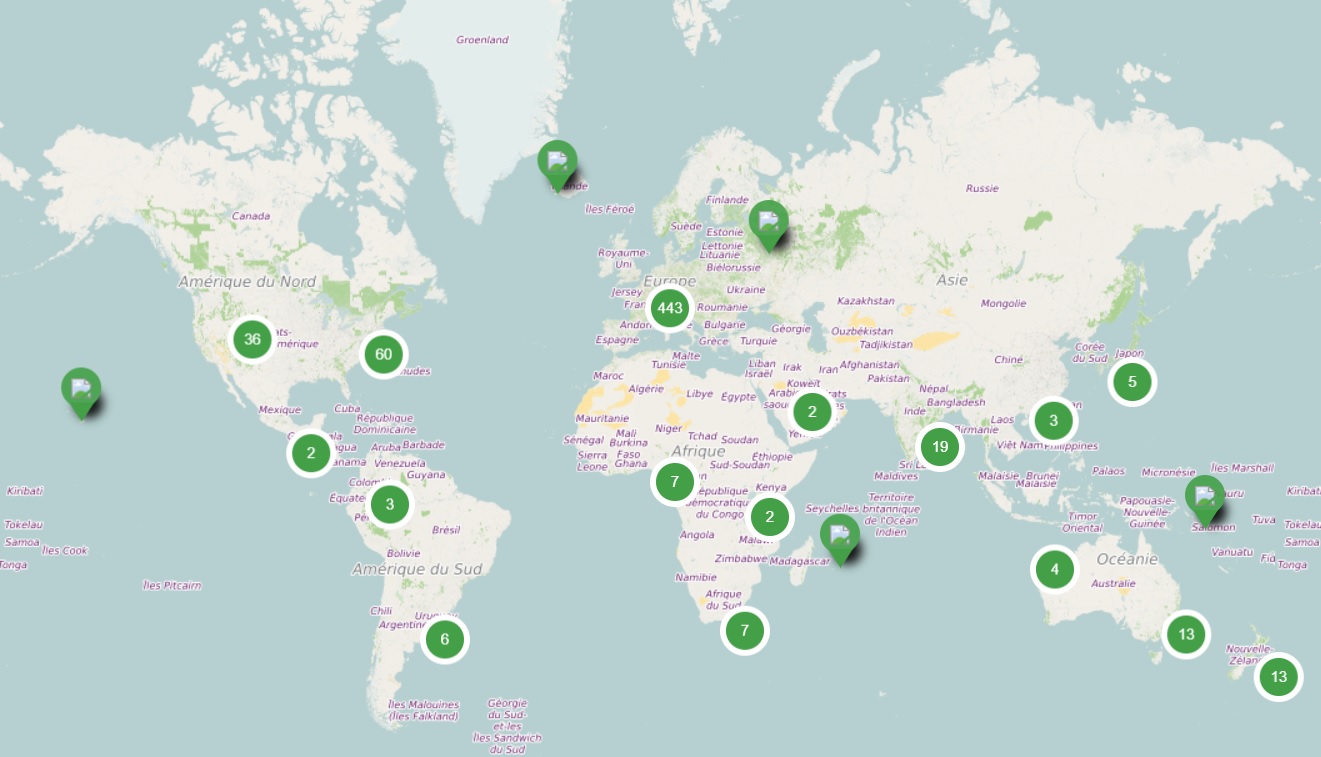The climate emergency makes the comparison between humans and dinosaurs inescapable: Both face extinction from a climate crisis. But with a difference. The dinosaurs didn’t bring it on themselves. An asteroid hitting Earth and a giant volcano did it for them. By contrast, humans are doing it to themselves. The scientific evidence is incontrovertible, the climate emergency results from the industrial revolution.
And the climate emergency is much more than rising temperatures and sea levels. It’s choking pollution, it’s a calamitous drop in biodiversity, with more than half the world’s species gone over the last 30 years. In short, it’s the 6th mass extinction. And it’s happening now. The Artic melted this summer like never before. The question is: Can we survive as a species?
The question is urgent. We can no longer afford to waste time discussing scientific facts with climate deniers. We need to consider what to do concretely to avert disaster – anything less is irresponsible.
That is the point made by a mild-mannered professor at a British university, Dr. Rupert Read who teaches at the University of East Anglia (UK) and self-describes as a committed climate and environmental campaigner. Most recently, he has been a frequent spokesperson for Extinction Rebellion and a member of their political liaison team. For anyone who hasn’t heard yet about the Extinction Rebellion, here is a quick video that sums it up:
Extinction Rebellion is a people’s movement that was launched in May 2018 with protests in the UK and is now active around the globe. Starting 7 October, and for two weeks, protests are planned in London (you can sign up here) and other major cities (to join, check this site). The movement has become truly worldwide:
It has already achieved one of its goals: It got the UK Parliament to declare on May 1st 2019 a state of “climate emergency”. Through the summer, the parliaments of other countries joined with similar declarations: Ireland, the Holy See, Canada, France, Argentina, Spain, Austria, in that order. Local administrations joined too, including New York and San Francisco in the US; Sidney and Melbourne in Australia; Paris and Mulhouse in France; most towns in Canada and Germany. The list is endless and growing.
At the moment of writing, Extinction Rebellion protesters are defying the London city ban on protests and nursing mothers target Google. Why Google? Because a recent UK Guardian piece of investigative journalism revealed that Google, despite insisting that it supports action on the climate emergency, has in fact made “substantial” contributions to notorious climate deniers in Washington.

Last year Dr. Read famously refused to discuss climate change on the BBC with a well-known climate denier. The Internet lit up with news of his refusal and the BBC was eventually forced to review its journalistic approach. That approach is in fact common in professional journalism: it is based on the idea that to ensure fairness in reporting, you should give equal space to opposing points of view.
The BBC has changed the way it addresses the climate emergency and so have a number of other media. Notably the UK Guardian has joined in with its own pledge:
…we will continue to give global heating, wildlife extinction and pollution the urgent attention and prominence they demand. The Guardian recognises the climate emergency as the defining issue of our times.
Incidentally, as our readers know, Impakter has always recognized the climate emergency as the “defining issue of our times”. We have absolutely no doubts that it is and have made every effort to report on it.
To return to the main point, which is this: With science and everyone’s personal experience with extreme weather events confirming it, the climate issue is settled. It’s no longer an issue to discuss. It’s something that needs to be addressed, period. Because, as Dr. Read made quite clear in an article with a catchy title that went viral in 2017, “This Civilisation is Finished”
 There are, he argues, only three possible outcomes:
There are, he argues, only three possible outcomes:
(1) This civilisation could collapse utterly and terminally, as a result of climatic instability (leading for instance to catastrophic food shortages as a probable mechanism of collapse), or possibly sooner than that, through nuclear war, pandemic, or financial collapse leading to mass civil breakdown. Any of these are likely to be precipitated in part by ecological/climate instability, as Darfur and Syria were. Or
(2) This civilisation (we) will manage to seed a future successor-civilisation(s), as this one collapses. Or
(3) This civilisation will somehow manage to transform itself deliberately, radically and rapidly, in an unprecedented manner, in time to avert collapse.
Option (3) is the one he and the Extinction Rebellion are working on. More about all this in a fascinating book just published, a dialogue between Rupert Read and another climate expert, an Australian academic, Sam Alexander, who teaches at the University of Melbourne and is the author of an intriguing work of fiction called Entropia: Life Beyond Industrial Civilisation.
The book came out in September 2019 with a longer title: “This Civilisation is Finished: Conversations on the End of Empire” . For Rupert Read, our industrial civilisation “has no future. It requires limitless economic growth on a finite planet.”
It is hard to disagree with this diagnostic. Our present consumption levels are already unsustainable: Every year, we dig deeper in the Earth’s resources. It has been reliably estimated that if we continue to use oil “at the rate we do now which is almost 200 million tonnes a year globally, we have only about 40 years or so left”. Ditto for coal.
In his talk with Alexander, Rupert Read gives 2025 as the deadline by which we need to bring carbon emissions down to zero if we, as a species, are to survive at all. Not to mention all the other species that have already gone extinct. In his most recent appearance on the BBC, he is making his concerns crystal clear:
Yes, we are reaching the end of the road. But, more than ever before, we need everyone on board to avert catastrophe. Everyone from those who propose things like technological fixes – even if some of the fixes are “way out” and might cause problems of their own – to those who embrace the Green New Deal.
Because the neo-liberal endless-growth model based on fossil fuels needs to be replaced. Endless growth is out, sustainable living is in. Obviously the approaches are different, there are shades of sustainability with some climate activists requiring immediate application of the new model, others admitting a more gradual approach.
Yet, given the strength of vested interests and the economic power of the fossil fuel industry, it’s a good strategy to get everyone on board to fight for change. Including experts who work with governments, like Jeremy Rifkin, the author of 21 books. He makes some excellent points in his book just out: The Green New Deal.

In this book, he proposes a plan to confront climate change, transform the American economy, and create a green post-fossil fuel culture.
What is interesting about this plan is that is comes from someone who works for governments from from the inside. He is the architect of the “Third Industrial Revolution” adopted by the European Parliament in 2007 and now implemented by various agencies of the European Commission. And he has recently opened an office in Beijing to work with China.
There is however a striking new idea in his book. He identifies one important economic trend that could really change the way the climate emergency will play out.
The trend is a continuing drop in the cost of renewables. We all know that’s true, but Rifkin has taken it to its logical conclusion.
This means that fossil fuels are becoming more expensive relative to green energy (wind, sun). And Rifkin predicts a collapse of the oil and coal markets as soon as the mid 2020s. He even gives a precise date, predicting our “fossil fuel civilization” will collapse by 2028.
That’s less than 10 years away. No wonder Greta Thunberg is so angry. The generation in power today is truly stealing away the future of young people everywhere.
But there’s a silver lining in this coming disaster.
The marketplace forces, if Rifkin is right (and it’s highly likely that he is) are on the side of green energy. And that’s very good news.











